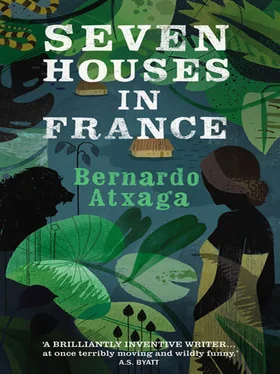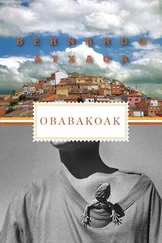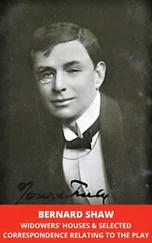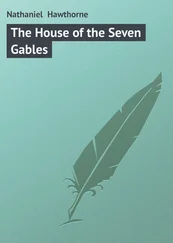‘“Sisyphus”, they said, “the rock you are carrying on your back has crumbled; sit down on the river bank, if you wish, and watch the water flowing. There is no weight now, there are no obligations.”’
The poem would have to continue in the same vein in order to reflect the enormous sense of relief he was feeling. Soon, he would be following the same direction as the waters of the river, when he travelled to Léopoldville, then on by train to Matadi, and finally, by steamboat to Europe.
He considered again the numbers in the article — 370, 280, 320, 330 — and wondered if they should perhaps appear in the poem as symbols of the force that would destroy Sisyphus’ heavy rock, his life in Yangambi. But it was difficult to include numbers in a poem. He had never done it before. What a shame he wasn’t in Paris, where he could have debated the matter with his colleagues, the poets of La Bonne Nuit!
Donatien arrived on the porch in great haste, placed three letters on the table, then saluted.
‘This one comes from the commanders of the Force Publique, this from Duke Armand Saint-Foix, and the third from your wife, Christine Saliat de Meilhan,’ he told him, placing his index finger on each envelope as he spoke.
This seemed rather a scant amount of correspondence after three weeks in the jungle.
‘Would you like me to shave you, sir?’ asked Donatien.
‘After I’ve read the letters.’
Donatien seemed disinclined to leave. His Adam’s apple kept moving up and down. He started to say something, then stopped, stammering.
Lalande Biran looked up. ‘Is something wrong?’ he asked.
‘Today is Thursday, sir. The girl is waiting in the grass hut,’ Donatien said at last, running his words together even more than usual: ‘ Aujourd’e’jeuimontcatainelafielaupaillote .’
Lalande Biran looked at him hard. Donatien was clearly having difficulty curbing his desires and, had he been made of bolder stuff, would have rushed off to join the girl in the hut. Lalande Biran felt no such urge. Those three weeks spent in the jungle, hunting for ivory, had not awoken in him the slightest desire to possess a young woman. He could not explain such apathy. Like his sight and his love of painting, his sexual desire was becoming ever feebler.
His eye was caught by a shadow flashing over the water, however, it belonged not to bats, but to some birds known as waki .
‘Lock her away somewhere until tomorrow,’ he said, stubbing out his cigarette on the sole of his boot, then placing the butt in his glass.
Donatien had a cage in his hut, which he used whenever he had to keep a girl captive for a while. He nodded; he would do as he was told. His Adam’s apple was moving more slowly now, as if it were sad.
‘Donatien,’ Lalande Biran said. ‘You saw the mandrills we brought back with us, didn’t you? They’re on the firing range. If you really can’t control your sexual urges, I suggest you select one of the females. I’m sure you’ll find one to your taste.’
For a moment, Donatien hesitated. Then he again saluted and went off to the storeroom.
The letter from the commanders of the Force Publique asked the same question they had asked every autumn for the last six years. They wanted to know if he was prepared to continue serving the company. King Léopold would, of course, be most grateful, but they were obliged to tell him that, given the huge amount of investment being poured into the Congo, an increased percentage of the profits from the sale of rubber was, at that moment, impossible.
His reply to that letter from Brussels had also been the same for the last six years, but this time it would be different: ‘My sincere thanks to the King for his kind offer, but the time has come for me to retire …’
He put the official letter down on the table again and picked up the one from Toisonet. Before he read it, he glanced across at the river. Dozens of waki were flying above it, criss-crossing the air like swallows, except that they were brilliant white in colour.
Toisonet began his letter with the words ‘ Moustachu, mon cher ami ’ rather than his usual ‘ Cher Moustachu ’. Lalande was taken aback by this change. Something must be wrong.
Line by line, the contents of the letter confirmed the Captain’s first impression. Hardly anyone would be present on the visit to Yangambi. He, Toisonet, would not be coming, nor would Mbula Matari. The party would comprise only the sculpture of the Virgin, the bishop who would officiate at the mass and Ferdinand Lassalle, possibly the best journalist of his day, winner of the Prix Globe for his articles on the Foreign Legion.
‘Moustachu, do try and make friends with Lassalle. You won’t find a better companion among the delegation,’ Toisonet urged him.
He also referred to the house in St-Jean-Cap-Ferrat. Christine would be sending him all the details, but he wanted him to know that the administrator of that part of the coast was fully informed and had undertaken to find them a villa in the quarter known as La Petite Afrique. Since they were rich — ‘even richer now’, said Toisonet, underlining the words — they would have a salon lined with mahogany.
‘ Moustachu, mon cher ami ,’ Toisonet said again at the end of the letter. ‘Don’t break anything, don’t whip the lion I’m having sent to you from Brussels. Keep your rage and your chicotte for when you come to St-Jean-Cap-Ferrat. There are as many creatures who deserve a good whipping here as in Yangambi, possibly more. Why, you need look no further than myself, for I definitely deserve to be punished. One does not treat a true friend as I have treated you, promising an embrace and then withdrawing it.’
Lalande Biran looked around him, but could not see his chicotte. He seemed to remember taking it with him when he went for a swim. He must have left it in the changing-room or on the jetty. An instant later, before he had even finished that thought, there it was in Van Thiegel’s hand.
‘A servant found it in the changing-room,’ Van Thiegel said, coming through the glass door onto the porch. He wasn’t sure where to put it.
Lalande Biran grabbed it and hurled it at one of the posts where the canoes were moored, but he threw it so hard that it reached the river’s edge, where it lay like a snake that had died on leaving the water.
Van Thiegel sat down beside him, legs splayed.
‘They’ve written to me as well,’ he said, meaning the letter from the commanders of the Force Publique. ‘What’s that expression in Latin?’
‘ Alea jacta est .’
‘That’s it. It’s over. For me too.’
The two men sat in silence, watching the ceaseless toing and froing of birds over the surface of the water. It was evening. The day, it seemed, was drawing to a close with not a drop of rain. There was no noise, apart from the odd word from the card-players inside that occasionally penetrated the glass door.
‘Was there a lion on the steamboat?’
‘On the steamboat?’ Van Thiegel asked, wide-eyed.
‘That’s what Monsieur X says, that they’ve sent us a lion from Brussels. From the zoo, I suppose.’
‘Not as far as I know,’ Van Thiegel said. ‘No lion has arrived in Yangambi on the steamboat or by any other means. And no lion has gone near the mandrills you brought back with you either.’
‘Just as well. We don’t need lions here. If anyone wants one, he can go and find one in the jungle and shove it up his arse,’ declared Lalande Biran.
Van Thiegel laughed. He enjoyed it when the Captain got angry.
‘What are we going to do with those mandrills?’ he asked.
‘The askaris will want to eat them, as will Richardson,’ said Lalande Biran. ‘I suppose the best thing would be to organise a shooting match. In the next couple of days. Sunday perhaps.’
Читать дальше












